The environmental challenges we face today are not the same as those we faced a century, or even a decade, ago. Since its founding in 1900, the Yale School of the Environment has adapted to these shifting challenges, adjusting its focus—and its name—along the way. Launched as the Yale Forest School, it answered the need for a cohesive, coherent approach to forest management. In the following decades, the school produced the US Forest Service’s first four chiefs, and its graduates shaped our modern understanding of conservation, environmental education, and public lands.
As the twentieth century progressed, the need to address other aspects of the environment—ecology and biodiversity; watersheds and coastal ecosystems; societies and health—became clear. In 1972, the same year the Clean Water Act was passed, and a year before the Endangered Species Act, the school was renamed the Yale School of Forestry & Environmental Studies. In 2020, it became the Yale School of the Environment (YSE) to better reflect its growth and the breadth of its environmental science research, teaching, and practice, which has expanded to include urban sustainability, clean energy, natural resource economics, and environmental law and policy, among many other areas.
YSE has always operated at the forefront of progress and innovation, and six newly endowed professorships epitomize the school’s expansive approach. From plant eco-physiology to environmental justice, the new chairs will support new and ongoing work at the school as it continues to evolve. These professorships also demonstrate the school’s commitment to faculty excellence—a commitment that hasn’t changed in its 125 years.

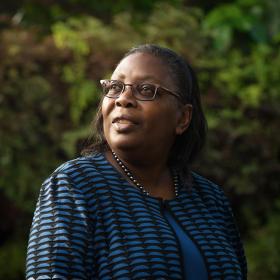


A Growing Legacy of Environmental Justice
Dorceta Taylor ’85 MFS, ’91 PhD has studied the intersection of race, class, and the environment for decades. In October, she was named the Wangari Maathai Professor of Environmental Justice, a chair created by Pam Kohlberg ’75, ’77 MFS.
Taylor’s scholarship has helped reveal how funding and grants tend to go to environmental organizations headed by men rather than those led by women and to disfavor organizations led by people of color. By presenting these findings to grant-making organizations, Taylor has helped funders correct these inequities. She has also advised nonprofits led by women and people of color on how to more successfully apply for grants.
Appointed to the YSE faculty in 2020, Taylor now holds the only professorship at an American environmental school named after a Black woman. “I am honored and humbled to hold this professorship,” she says. “Wangari Maathai is someone whose work I’ve known and followed since I was a student.”
Maathai, who died in 2011, was awarded the Nobel Peace Prize in 2004 and an honorary degree from Yale earlier that year. She founded the Green Belt Movement, which empowers women and communities in Kenya and across Africa to conserve the environment and improve their livelihoods through tree planting, environmental management, and community empowerment.
“Dorceta Taylor’s extensive, pioneering work on the history of environmental justice and diversity studies in environmental institutions, along with her prolific authorship, has made her an excellent mentor and thought leader in the school and the broader environmental movement,” says Kohlberg. “She continues the illustrious legacy of Wangari Maathai, and it is an honor to support her work.”

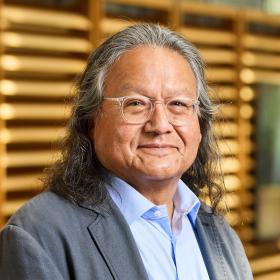


Studying Durable Legal Change
A second professorship in environmental justice further underscores the importance of this area of scholarship. Gerald Torres ’77 JD has been appointed the Dolores Huerta and Wilma Mankiller Professor of Environmental Justice, a chair endowed by Mary Penniman Moran, Kohlberg, and Frances Beinecke ’71, ’74 MFS.
An expert in federal Indian law and environmental and natural resources, Torres founded the Yale Center for Environmental Justice, a joint initiative of YSE and Yale Law School. He studies how social movements—like the civil rights, labor, and environmental movements—can create durable legal change. He has also studied how tribes can cooperatively manage resources with federal and state governments.
Torres notes that Wilma Mankiller was the first woman principal chief of the Cherokee Nation and was responsible for bringing public water systems to Cherokee country in Oklahoma. “I consider that to be a public health and an environmental justice effort,” he says. Yale awarded her an honorary degree in 1990.
In 2021, Dolores Huerta was also awarded an honorary degree by Yale. She co-founded the influential National Farm Workers Association, now called United Farm Workers, alongside Cesar Chavez in 1962, and was instrumental in bringing attention to the effects of pesticides on farm workers and the broader public.
Torres hopes that students who are considering studying at YSE will see that the school valorizes people like Huerta and Mankiller. “They can feel a sense of belonging to the broader community of environmental scholars, managers, and professionals that both YSE and Yale Law School produce,” he says.
“I am honored to have this opportunity to support YSE and invest in the important work of environmental justice,” Penniman Moran says. “Students at YSE and the law school benefit from Gerald Torres’s expertise, as does the wider world.”
Beinecke reflects, “Scholars like Gerald Torres remind us that issues of justice and climate are intertwined, and we cannot successfully protect the environment without addressing the needs of the people who inhabit it.”

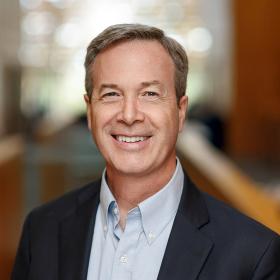


Communicating Climate Change
Anthony Leiserowitz, the inaugural JoshAni-TomKat Professor of Climate Communication, directs the Yale Program on Climate Change Communication, which he founded in 2007. At YPCCC, he and his colleagues investigate the psychological, cultural, and political factors that influence how people around the world respond to climate change.
“Different publics respond to climate change in very different ways,” Leiserowitz says. Tailoring climate communication to engage these different parts of the public in climate solutions will be critical to global efforts to maintain a safe and stable climate.
The importance of environmental and climate change communication has grown as science has advanced, Leiserowitz says. “If the best science in the world just sits on a shelf and nobody knows about it or can understand it, it will have very limited impact.”
The new professorship is named for the donors whose support made it possible, Josh Bekenstein ’80 and Anita Bekenstein, together with Tom Steyer ’79 and Kat Taylor.
“Anita and I are pleased to support this critical aspect of education for YSE students,” says Josh Bekenstein. “Knowing how to foster trust and understanding among the public will help them be effective climate leaders.”
“Communication is a crucial part of enacting climate solutions,” says Tom Steyer. “Kat and I recognize the remarkable work that Anthony Leiserowitz has done in this field.”

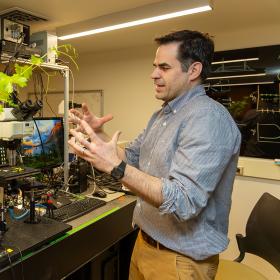


Bridging Gaps in Plant Science
For all YSE’s expansions over the years, groundbreaking science remains at the core of its mission. But the fundamental research that scientists at YSE do has also changed and evolved over time.
Craig Brodersen studies how plants move water through their tissues and how they deal with environmental stress. He was recently appointed the inaugural Howard and Maryam Newman Professor of Plant Physiological Ecology, a chair endowed by Howard Newman ’69, ’69 MA and Maryam Newman.
“A large majority of the water coming out of the atmosphere returns to the atmosphere through the water transportation system of plants,” Brodersen says. “If we want to understand the water cycle, we have to understand how plants move water.”
Brodersen says that today, scientists often study plants at either the molecular level or the landscape level. “My lab sits at the interface between these two scales, between micro and macro,” he says. Brodersen applies findings in genetics, cell biology, and biochemistry toward a better understanding of forests and agricultural systems. He and his collaborators are also investigating how to make plants more drought-resistant while increasing their ability to take up and store carbon dioxide.
In the video below, a series of cross-section scans of a California white sage leaf by Brodersen allows him and his colleagues to better understand how different traits help plants tolerate drought.
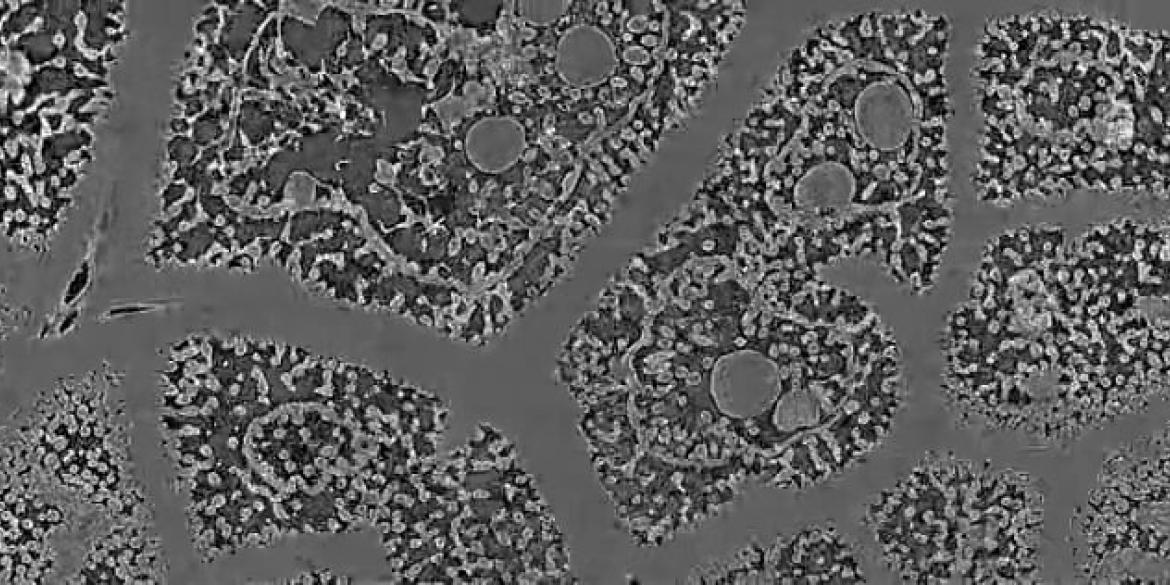
“The long-term commitment from the Newmans makes this kind of work possible,” Brodersen says. “It’s high-risk, high-reward research, often with a long time horizon for success, that is sometimes difficult to get funding for from federal agencies.”
“Understanding plant biology is key to solving the carbon dioxide problem,” says Howard Newman. “We have long admired Craig’s research and are proud to lend our names and support to this professorship.”
More Professorships on the Horizon
In addition to the four newest chairs to whom professors have been named, two more have been announced. The Liliane and Christian Haub Professorship will support a faculty member doing work in green engineering, the development and commercialization of industrial processes that are economically feasible and reduce risk to human health and the environment—an area where Yale has long excelled.
“Green engineering research at Yale has had a significant, positive impact on a wide range of industries,” Christian Haub says. “We hope that this professorship will help accelerate the discoveries and innovations that are so crucial to bringing us into a more sustainable future,” adds Liliane Haub.
The Bataua Professorship will support a new faculty position at the school focused on collaborative practice, thanks to support from Heinrich Jessen ’95 MEM.
“There’s a skill and science to reaching a consensus around difficult issues through collaborative practice,” says Jessen. “YSE students will need to know how to negotiate and navigate among groups with differing perspectives on important environmental questions, no matter what field they end up in.”
For the Future
Thanks to the generosity of alumni and friends, YSE remains a trailblazer, attracting and supporting faculty who are extraordinarily skilled researchers, practitioners, and educators.
“YSE’s strength is rooted in our interdisciplinary approach to developing solutions to meet some of society’s greatest global challenges,” said Indy Burke, the Carl W. Knobloch, Jr. Dean of YSE. “As we celebrate 125 years of leadership, innovation, and impact, we are fortunate to have alumni and friends whose wide-ranging support for faculty will help us continue world-changing research and educate the next generation of environmental leaders.”
Image of Craig Brodersen by Joe Dwyer
